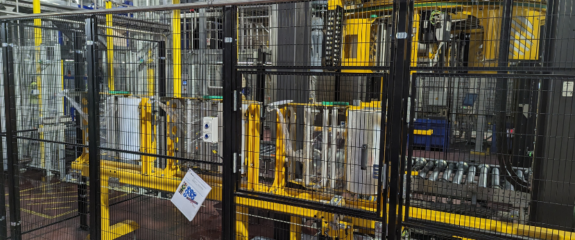Need help?
Get in touch
© Lindum Packaging Limited, registered in England and Wales, number 03686136. VAT registration number 716624731
ProductsWhat we offer
SolutionsWhat we do
IndustriesWho we serve
ResourcesStay up to date
With businesses in all sectors looking for ways to reduce their carbon footprint, and a new plastics tax looming, you may be seeking out more sustainable alternatives to traditional pallet wrap. But with a range of eco-friendly options to choose from, which is right for your business?
Biodegradable films
Biodegradable pallet wrap can undergo a chemical process in which microorganisms in the environment convert the material back into natural substances like carbon dioxide, biomass and water.
One of the advantages of biodegradable pallet wrap is carbon emissions are greatly reduced during the manufacturing process, which requires less energy.
However, for these plastics to fully break down, the conditions of the environment usually must be quite specific, requiring industrial composters to turn them into composts, so access to such equipment is something you’ll need to consider.
Bio-based
Another option is bio-based films, which use granulate made from natural resin acids and fatty acids (tall oil). This biological raw material is a manufacturing by-product which is added to traditional polyethylene.
Unlike bio plastics made from renewable raw materials such as maize or sugarcane, no land (which could otherwise be used for food production) is needed for tall oil. Biofilms are also 100% recyclable – a critical factor for truly eco-friendly packaging.
However, despite the obvious environmental benefits, these plastics are not exempt from the plastics tax, which comes into force in just six months’ time.
Recycled content
The tax, which will be applied to plastic packaging with less than 30% recycled content, comes into force in April 2022. As a business, you may be looking for ways to avoid the tax and save on costs. Pallet wrap with the requisite 30% recycled content is available from Lindum and unlike 100% virgin polymer films, these plastic flexibles contain polythene resin material that has been recycled and then re-granulated.
These films successfully meet the stringent OPRL definition of ‘recycled’ and are compatible with a circular economy model, and it’s really easy to make the switch. A simple adjustment is all it takes for our recycled content nano film to work with your existing equipment.
If you’re thinking about switching pallet wrap and are still wondering which is the best solution for you, first consider your reasons for making a change. If it’s purely to reduce your carbon footprint, it’s worth considering bio-based options. If cutting costs is your priority, the most important factor is to compare the cost per pallet of different wrapping materials.
However, with £200 per tonne about to be levied on plastic packaging that contains less than 30% recycled plastic, the savings to be made by opting for recycled content are significant.
If you would like advice on which option is best suited to your business, get in touch with our experts today.


